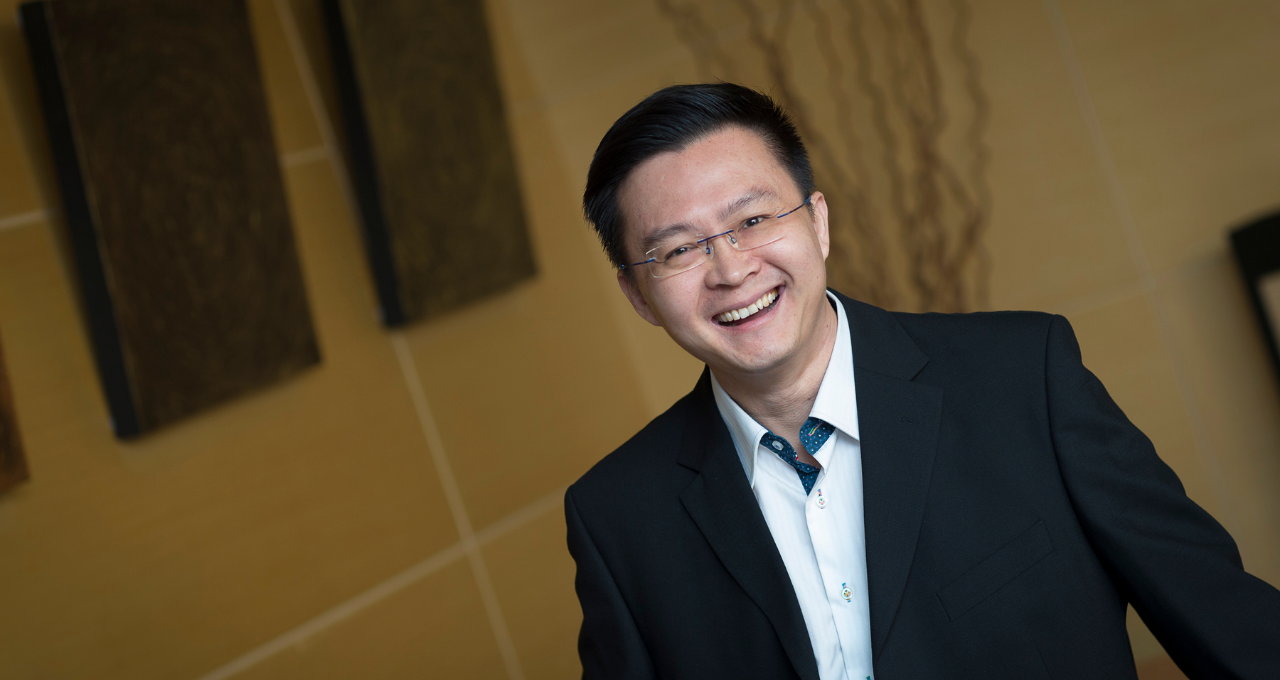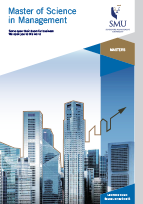
Like most modern-day consumers, Lim Yun Fong, the Associate Professor of Operations Management at Lee Kong Chian School of Business (LKCSB) and the Academic Director of its Master of Science in Management (MiM) programme, indulges in the occasional retail therapy. Apart from being a fan of flash sales and a savvy navigator of online marketplaces, it is fair to say that he has a deeper appreciation of the complex logistics behind e-commerce purchases than your average online shopper.
Assoc Prof Lim’s research interests cover all crucial aspects that fuel online ecommerce — estimated to be worth US$4.9 billion in just Singapore alone, and the offline factors that make it tick: including e-commerce and marketplace analytics, inventory management, warehousing and fulfillment, sustainable urban logistics, and flexible workforce and resource management.
It is no wonder he says: “I have learned to appreciate the hard work behind the scenes when I receive my orders from e-commerce websites. It is impossible to have a successful digital economy without the efforts of the unsung heroes in warehouses and delivery processes.”
Long before he developed an interest in the relentless pace of online retail, Assoc Prof Lim was an avid athlete. “I was born and grew up in a small town in Malaysia, and I spent a lot of time playing badminton when I was in primary and secondary schools. I once played for my state in a nation-wide competition. As a matter of fact, I dreamed of becoming a professional badminton player when I was young,” he shares.
Soon, other more academic paths beckoned. After obtaining a bachelor’s degree in physics and a master’s degree in computational science, he became a software engineer, developing optimisation software for Changi Airport and the logistics industry. “That’s when I found my interest in operations management,” says Assoc Prof Lim.
As a result of this newfound passion, he enrolled at the Georgia Institute of Technology to obtain a PhD degree in industrial and systems engineering. The transition to this new discipline was a relatively smooth one for him, because “the analytical and quantitative training in physics had prepared me for graduate studies in operations management. In terms of problem-solving approaches and identifying insights, the two fields are quite similar”.
Just why did operations management fascinate him so much? “Operations management is like electricity. You benefit from it without necessarily knowing it,” he explains. “Some of the fundamental supply chain infrastructure and processes determine the fluidity of the global economy.”
In fact, says Assoc Prof Lim, operations management is the backbone of many corporations, and can enable the realisation of business ideas, innovations, and strategies if successfully managed. Just ask Tim Cook — the former Chief Operating Officer of Apple was handpicked by Steve Jobs to become the company’s CEO in 2011 because of his expertise with supply chains.
Today, the field of operations management has become a lot more exciting, as it is inextricably intertwined with some of the most paradigm-changing innovations in the global economy.
Assoc Prof Lim cites the digital platforms and marketplace business models pioneered by Alibaba and Amazon as examples, calling these “the greatest business innovations in the era of digital business and AI implementation”.
In an online marketplace model, a company like Alibaba acts as a platform for the products and services of different sellers (Amazon does this as well, but also sells its own products). The success of such models rests on an intricate infrastructure and logistics ecosystem that is able to run like clockwork.
Beyond the rise of such behemoths, various other digital platforms have also emerged, allowing small and medium enterprises in different countries to reach out to international markets and allowing buyers more choices, Assoc Prof Lim notes.
“In addition, many on-demand platforms such as Airbnb (USA) and Didi Chuxing (China) unlock underutilised resources and manpower and provide affordable alternatives for consumers,” he adds.
That said, these innovations are not without imperfections. For instance, while much attention has been lavished on Amazon’s mastery of operations, the current pandemic has also turned the spotlight on ethical issues, such as the company’s lack of protection for its warehouse workers' health and safety.
Such issues will grow more significant, Assoc Prof Lim believes. “The pandemic has uncovered some of the previously neglected aspects of the global supply chain. Society is starting to pay more attention to the processes and people that handle their food, medical supplies, and even toys.”
One hopefully permanent change for operations management that may result from the COVID-19 pandemic is this — more people will realise, just like Assoc Prof Lim, that the efforts of these unsung heroes help to power modern life, and accordingly value their crucial contributions to the vital field of operations management.
Speak to our Admissions Advisors
Lee Kong Chian School of Business
Postgraduate Admissions
Graduate Programmes Office
50 Stamford Rd, Singapore 178899
Tel: +65 6828 0882
Join us at the upcoming events
Ofukacho, 1−1 ヨドバシ梅田タワ
Osaka, Kita Ward, 〒530-0011, Japan
Kyobashi, 1 Chome−3−5 三井ガーデンホテル 1F
Chuo City, Tokyo, 〒104-0031, Japan
